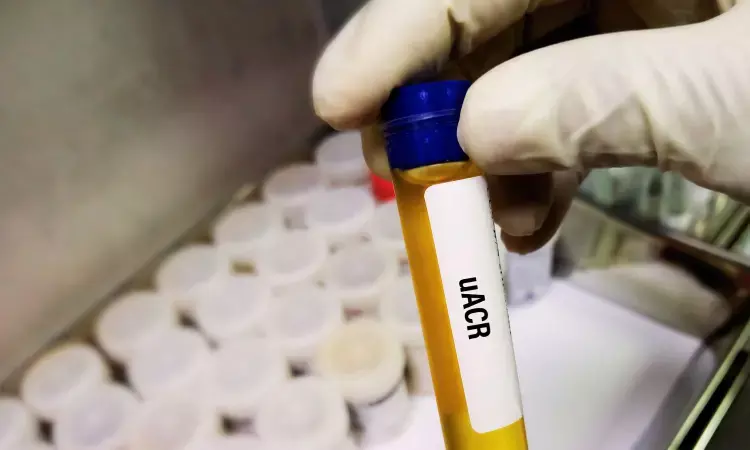- Home
- Medical news & Guidelines
- Anesthesiology
- Cardiology and CTVS
- Critical Care
- Dentistry
- Dermatology
- Diabetes and Endocrinology
- ENT
- Gastroenterology
- Medicine
- Nephrology
- Neurology
- Obstretics-Gynaecology
- Oncology
- Ophthalmology
- Orthopaedics
- Pediatrics-Neonatology
- Psychiatry
- Pulmonology
- Radiology
- Surgery
- Urology
- Laboratory Medicine
- Diet
- Nursing
- Paramedical
- Physiotherapy
- Health news
- Fact Check
- Bone Health Fact Check
- Brain Health Fact Check
- Cancer Related Fact Check
- Child Care Fact Check
- Dental and oral health fact check
- Diabetes and metabolic health fact check
- Diet and Nutrition Fact Check
- Eye and ENT Care Fact Check
- Fitness fact check
- Gut health fact check
- Heart health fact check
- Kidney health fact check
- Medical education fact check
- Men's health fact check
- Respiratory fact check
- Skin and hair care fact check
- Vaccine and Immunization fact check
- Women's health fact check
- AYUSH
- State News
- Andaman and Nicobar Islands
- Andhra Pradesh
- Arunachal Pradesh
- Assam
- Bihar
- Chandigarh
- Chattisgarh
- Dadra and Nagar Haveli
- Daman and Diu
- Delhi
- Goa
- Gujarat
- Haryana
- Himachal Pradesh
- Jammu & Kashmir
- Jharkhand
- Karnataka
- Kerala
- Ladakh
- Lakshadweep
- Madhya Pradesh
- Maharashtra
- Manipur
- Meghalaya
- Mizoram
- Nagaland
- Odisha
- Puducherry
- Punjab
- Rajasthan
- Sikkim
- Tamil Nadu
- Telangana
- Tripura
- Uttar Pradesh
- Uttrakhand
- West Bengal
- Medical Education
- Industry
Albuminuria Signals Higher Cardiorenal Risk in Hypertensive Patients: Danish Study

Denmark: A large-scale Danish study has highlighted the critical importance of evaluating urinary albumin-to-creatinine ratio (uACR) in individuals beginning treatment for hypertension. The findings, published in the BMJ journal Open Heart and led by Casper Binding from the Department of Cardiology, Hvidovre Hospital, Denmark, suggest that the presence of albuminuria, particularly in its severe form (macroalbuminuria), substantially raises the risk of serious cardiovascular and kidney-related outcomes.
Researchers analyzed data from 144,644 patients who initiated antihypertensive therapy using nationwide health registries in Denmark.
The following were the key findings of the study:
- Urinary albumin-to-creatinine ratio (uACR) testing was not conducted in 80% of patients at the initiation of antihypertensive treatment.
- Patients with macroalbuminuria faced a significantly higher risk of major adverse cardiovascular events (MACE), heart failure, and kidney-related complications during a two-year follow-up period.
- The absolute risk of MACE in individuals with macroalbuminuria was 5.3%, more than twice that of patients with normal uACR levels (HR 2.02).
- These patients had an almost twofold increased risk of hospitalization due to heart failure (HR 1.99).
- They were over four times more likely to progress to end-stage kidney disease (HR 4.52).
- The risk of experiencing a 40% decline in kidney function was also more than four times higher in this group (HR 4.81).
- These increased risks were consistently observed across various levels of baseline kidney function (eGFR between 30 and 120 mL/min/1.73 m²).
The research emphasizes the clinical significance of albuminuria as a strong marker for future cardiorenal complications in newly treated hypertensive patients. Although existing international guidelines advocate routine measurement of uACR in hypertension management, the low rate of testing observed in this real-world cohort raises concerns about missed opportunities for early risk identification.
“Despite current recommendations, uACR is underutilized in routine clinical practice, yet our findings show that patients with elevated uACR levels—especially macroalbuminuria—are at markedly higher risk for both cardiovascular and renal complications,” the authors noted.
The study's authors advocate for more widespread implementation of uACR screening at the time of initiating antihypertensive therapy. They argue that identifying even early signs of albumin leakage in urine could help clinicians stratify patients based on their risk and tailor management strategies more effectively.
While the research reinforces the importance of uACR in predicting outcomes, the authors also suggest further studies to explore how albuminuria levels interact with precise blood pressure measurements, which could potentially improve the identification of high-risk patients.
"The study brings to light a significant gap in routine hypertension care and offers strong evidence that more frequent evaluation of uACR could play a pivotal role in preventing future cardiovascular and kidney-related events in this vulnerable patient population," the researchers concluded.
Reference:
Binding C, Elmegaard M, Anjum DZ, Carlson N, Schou M, Bonde AN. Urinary albumin-to-creatinine ratio in patients with hypertension and risk of major cardiovascular events. Open Heart. 2025 May 21;12(1):e003270. doi: 10.1136/openhrt-2025-003270. PMID: 40398961; PMCID: PMC12097050.
Dr Kamal Kant Kohli-MBBS, DTCD- a chest specialist with more than 30 years of practice and a flair for writing clinical articles, Dr Kamal Kant Kohli joined Medical Dialogues as a Chief Editor of Medical News. Besides writing articles, as an editor, he proofreads and verifies all the medical content published on Medical Dialogues including those coming from journals, studies,medical conferences,guidelines etc. Email: drkohli@medicaldialogues.in. Contact no. 011-43720751


